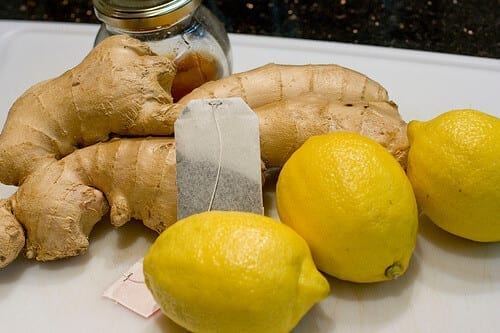“They say when radishes are on the market, people can forget pharmacies.”
– Zhang Qian, Imperial Envoy 2nd Century B.C.
February is one of the most common times of year for people to get sick. Kids go back to school and parents get back in the swing of a busy work schedule after the holidays. Our minds and bodies are synched and often when our minds are overwhelmed, it’s our bodies that take the beating. Sore throats, stuffy noses, body aches, and even the flu are all common symptoms of a mid-winter slump. Traditional Chinese medicine (TCM) has a ready remedy—give your body the right fuel and it will run smoothly.
TCM Perspective on Winter Diet and Heat Disorders
During the winter, people are often prone to eating heavier foods. There are several reasons for this: when the weather turns cold, hot and hearty meals are more appealing. Due to short days and long nights, people are also prone to exercise less, and certainly outside time is limited. There is simply more time available for snacking and dining in. People consume more meat in the winter: an ingredient most often served hot. These winter eating habits can cause excess “heat” to accumulate in the body.
The term “heat” in traditional Chinese medicine is complex, and can mean different things—but a simplified definition of a “heat” disorder in TCM is an unbalance associated with dryness, hyperactive stress, rashes or skin disorders, and inflammation. Exercising is a great way to help dispel heat from the body. However, in winter, when people are eating more “heat–friendly” foods and not exercising as often, it’s common for people to develop a heat disorder or imbalance, which can cause sore throats. Sore throats are considered to be a result of pathogenic heat.
Radishes: A TCM Remedy for Sore Throats
There are specific foods that can help balance these winter eating tendencies. Radishes, for example, belong to a “cold” food according to Chinese herbology. Radishes can improve digestion, dispel phlegm, quench thirst, and even reduce a cough. The large white radish indigenous to parts of China has long been called “little ginseng” for its curative powers. Radishes are abundant in vitamin A, vitamin C, and calcium. Nutritionally, radishes help improve the immune system, nutrient absorption, and soften blood vessels. They are also helpful with cooling blood and stimulating appetite.
If you think a career in holistic medicine is something you would like to pursue, contact us and speak to an admissions representative to get started on your new journey!
The Healing Power of Ginger and Honey
For an added benefit, try eating fresh raw radish tossed with honey. Raw, natural honey has powerful healing benefits. Raw honey can replenish energy, enhance stamina, and improve immune systems–it’s also a natural antibacterial. For a sore throat, cutting up raw ginger and boiling it in water and adding honey is an excellent ancient Chinese remedy.
Ginger is an ancient herb still used often today. Ginger has been proven to help kill bacteria, decrease inflammation in the body, soothe a cough, and strengthen the stomach. Ever wonder why ginger ale is recommended for a stomach ache? It’s due to the ginger, which can help with more than stomach pains. For a sore throat or flu symptoms, ginger can provide relief quickly and naturally to swollen glands.
After eating ginger, you may feel warm, as it helps blood vessels extend and accelerates blood circulation. In China, it’s believed that after getting soaked in rain, drinking a large bowl of hot ginger tea and then sweating will prevent catching a cold. When people show the earliest symptoms of a cold, such as sore throat or cough, ginger tea is believed to thwart its onset.
Additional Cooling Foods and Preventive Measures
Other cooling foods that can balance the heat of a sore throat include dandelions, mint, scallions, apples, pears, rose hips, and warm or room temperature water. Pears are particularly good because they also combat dryness in the body and are potent for lung health and decreasing congestion. Other simple remedies include drinking pear juice and eating thin slices of sweet lemons with the peel and a pinch of salt. And, remember, the best medicine is prevention. Moderate exercise and tai chi or qi gong can prevent the common cold. These rhythmic exercises bolster the immune system and decrease the stress that can cause physical imbalance.
SOURCES:
Show Shanti: Favorite Family Recipes in China
http://showshanti.com/easy-chinese-home-remedies-for-sore-throat-cough-cold/
Dr. Mao Health Dictionary
http://www.askdrmao.com/natural-health-dictionary/sore-throat/
Featured Posts:

